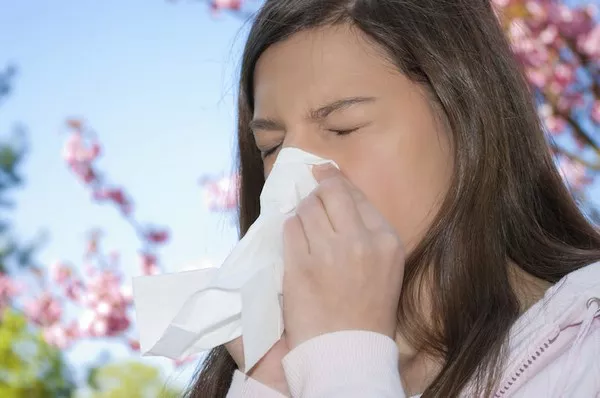Ragweed allergy, also known as hay fever or allergic rhinitis, affects millions of people around the world. As one of the most common seasonal allergies, ragweed pollen can trigger a range of symptoms, from sneezing and congestion to itchy eyes and throat. If you’re among those who suffer from ragweed allergies, you’re not alone, and there are effective strategies you can employ to find relief. In this article, we’ll explore what ragweed allergies are, the common symptoms, and practical ways to manage and alleviate the discomfort they cause.
Understanding Ragweed Allergies
Ragweed is a plant that grows in North America, primarily in the eastern and midwestern regions. There are 17 different species of ragweed, and the most common culprit of allergies is the common ragweed (Ambrosia artemisiifolia) and giant ragweed (Ambrosia trifida).
Ragweed allergies are primarily triggered by the pollen released by these plants. The pollen grains are tiny, lightweight, and easily carried by the wind, making it challenging to avoid exposure. When individuals with ragweed allergies come into contact with ragweed pollen, their immune systems perceive it as a threat, triggering an allergic response.
Common Symptoms of Ragweed Allergies
Ragweed allergies can manifest in a range of symptoms that typically occur during the late summer and fall when ragweed pollen counts are at their highest. The most common symptoms include:
Sneezing: Frequent and sudden sneezing is a hallmark symptom of ragweed allergies.
Runny or Stuffy Nose: Nasal congestion, runny nose, and postnasal drip are common, leading to discomfort and a reduced sense of smell.
Itchy or Watery Eyes: Ragweed allergies often cause itchy, red, and watery eyes, which can be particularly bothersome.
Throat Irritation: An itchy or scratchy throat is a frequent complaint among those with ragweed allergies.
Coughing: Persistent coughing, often in response to postnasal drip or throat irritation, is another common symptom.
Fatigue: Allergic reactions can leave individuals feeling tired and fatigued due to the body’s immune response.
Headache: Some people with ragweed allergies experience headaches, which can range from mild to severe.
Ear Congestion: Ear congestion or popping can also occur as a result of allergic reactions.
Difficulty Sleeping: Many individuals with ragweed allergies have trouble sleeping due to the above symptoms, which can affect their overall well-being.
Effective Strategies for Relief Ragweed Allergy
Stay Informed: Keep track of local pollen forecasts, so you’re aware of high pollen days. Adjust your outdoor activities accordingly, planning to spend more time indoors when pollen counts are elevated.
1. Use Allergy-Friendly Plants: If you’re a gardener, opt for low-allergenic plants in your garden to minimize the risk of exposure to allergenic pollen.
2. Allergy Medications: Over-the-counter or prescription antihistamines, decongestants, and nasal corticosteroids can provide relief from allergy symptoms. Consult with a healthcare professional to determine the right medication and dosage for your specific needs.
3. Allergy Shots (Immunotherapy): Allergy shots, or immunotherapy, can help reduce the severity of allergies over time. They work by exposing you to small amounts of the allergen (in this case, ragweed pollen) to build tolerance.
4. Nasal Irrigation: Saline nasal irrigation, using a neti pot or nasal spray, can help relieve congestion and clear out pollen and irritants from your nasal passages.
5. HEPA Air Filters: Use HEPA (high-efficiency particulate air) filters in your home to reduce airborne allergens, including ragweed pollen.
6. Keep Windows Closed: During ragweed season, keep windows and doors closed to prevent pollen from entering your home.
7. Change Clothes and Shower: After spending time outdoors, change your clothes, take a shower, and wash your hair to remove pollen and prevent it from settling in your home.
8. Limit Outdoor Activities: On days when pollen counts are high, try to limit your outdoor activities, especially during the mid-morning and early evening when pollen levels are typically at their peak.
9. Wear Sunglasses: Wearing sunglasses can help protect your eyes from ragweed pollen, reducing the risk of itchy, watery eyes.
10. Dry Laundry Indoors: Avoid hanging laundry outdoors during ragweed season, as it can trap pollen on your clothing.
11. Monitor Indoor Humidity: Maintaining an indoor humidity level between 30% and 50% can help prevent dust mites, another common allergen, from thriving in your home.
12. Allergy-Proof Bedding: Use allergen-proof covers on your pillows and mattress to prevent allergens, including ragweed pollen, from accumulating.
13. Local Honey: Some people believe that consuming local honey may help build tolerance to local allergens. While this theory lacks strong scientific evidence, it may be worth a try for some individuals.
14. Consult an Allergist: If your ragweed allergies are severe or significantly impact your quality of life, consider consulting an allergist for a comprehensive evaluation and personalized treatment plan.
The Importance of Allergen Avoidance
While these strategies can help manage ragweed allergies, it’s important to remember that complete allergen avoidance is challenging. Ragweed pollen is highly prevalent and can travel great distances, so even if you take steps to minimize exposure, some level of contact with the allergen is nearly unavoidable.
Managing ragweed allergies often involves a combination of lifestyle adjustments, medication, and other interventions to find the right balance that provides relief and improves your overall quality of life.
Conclusion
Ragweed allergies can be a significant source of discomfort during late summer and fall. However, with the right strategies and approaches, you can effectively manage and alleviate the symptoms associated with ragweed allergies. From staying informed about pollen forecasts to using allergy medications and allergen avoidance techniques, you can take control of your allergies and enjoy a more comfortable and symptom-free season. If your symptoms are severe or persist, consulting with an allergist is a valuable step to ensure you receive the best possible care and management for your ragweed allergies.


